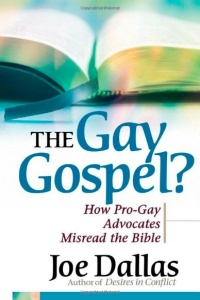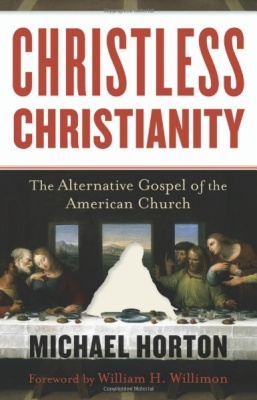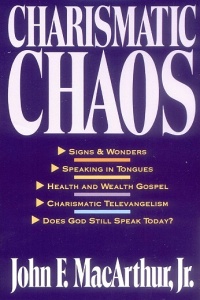A Brief Overview Of “Christian” Churches & Denominations
This article is an attempt to briefly explain what various churches and denominations are like, for the benefit of someone who is either a new Christian and is looking for a church to attend or for someone who is just curious about why there are so many different kinds of Christian churches. This paper does not attempt to name every so-called Christian church or denomination, but rather to give you an overview of some of the more common churches. The cults and free-will churches are not given much coverage. They all preach a false “free-will” gospel and so they should be avoided. The “reformed” churches and denominations are described in more detail since they are the only ones who have the correct/biblical view of God’s sovereignty, man’s depravity and the efficacy of the atonement of Christ.
Under the category of “Christian” churches you have:
CATHOLIC & CATHOLIC-LIKE:
Roman Catholic – The biggest Christian-like cult on the planet. This Church puts the word of the Pope above the Word of God – the Bible. They use the Catholic Catechism, papal edicts and writings of their Magisterium as their written authority superseding the Bible. The Catholic Church, also known as “the Church of Rome” is both a political as well as a religious organization with their own “city-state” (the Vatican) and their own ambassadors to most nations around the world. The claim to be the “one true Church” started by Jesus Christ yet they don’t even preach the true gospel of salvation by grace alone through faith alone in Christ and His merits alone.
Eastern Orthodox – Also known as Orthodox Catholic Church. Not much better theologically than the Roman Catholic church. They split off from the Roman Catholic Church in 1054, primarily over the authority of the pope.
CULTS & CULT-LIKE:
Seventh Day Adventist – This church is made up of people who prefer the teachings of William Miller and Ellen G White over the teachings of the Bible. Their preferred teachings are derived from Ellen White’s book “The Great Controversy”.
Mormon – also known as Church of Jesus Christ of Latter-day Saints. These folks prefer the teachings of Joseph Smith and his comrades (like Brigham Young) over and above the teachings of the Bible. Their preferred teachings are derived from the “Book Of Mormon” written by Mr. Smith.
Jehovah’s Witness – Their church buildings are called “kingdom halls”. They prefer the teachings of Charles Taze Russell over the teachings of the Bible. They’ve written their own bible (The New World Translation) to justify teaching doctrines that cannot be found in other Bibles.
Amish – This is primarily a religion one is born into. Its members have Swiss and German ancestors. They view baptism as entrance into church membership and adulthood more than a profession of faith. They are isolationists and don’t appear to practice evangelism. So what do they believe the gospel is? Good question. Because of their desire to live simple and primitive lives, the Amish actually split off from the Mennonites about 300 years ago.
Worldwide Church Of God – This cult was started by Herbert W Armstrong and its beliefs are referred to as Armstrongism.
PROTESTANT:
Protestant (or simply non-Catholic). Some churches in this large category do not consider themselves “Protestant” since their particular sect or denomination did not have its roots in the Protestant Reformation that began in Europe with Martin Luther in the 1500s. And in some cases the line from that 16th century religious movement to any particular church today may be a bit fuzzy.
Protestant denominations that are typically not pentecostal/charismatic:
Anglican – Arminian in doctrine. Very old Protestant denomination that broke away from the Catholic Church during the 16th century to become “the Church of England”. They are not a “Bible alone” denomination, basing their beliefs on the Bible PLUS church tradition and writings of the “church fathers”.
Church Of Christ – Most in this denomination believe that water baptism is actually necessary to acquire salvation, and not a sign of allegiance to Christ and His body (the Church) performed by a saved person.
Church Of The Brethren
Church Of The Nazarene – Yet another church with an Arminian gospel and a church that has its roots in the Holiness Movement.
Christian and Missionary Alliance – Arminian in doctrine
Episcopal – Arminian and very liberal in all their various branches.
Lutheran – Two man branches are: 1. the Evangelical Lutheran Church In America (ELCA) and 2. the Lutheran Church Missouri Synod. Both are off-base on salvation and the ELCA is extremely liberal with their practice of ordaining sodomites.
Mennonite – Mennonite churches tend to be very conservative in lifestyle but Arminian (unbiblical) in their view of salvation. While there is a variety of beliefs and lifestyles among Mennonites, some branches are almost identical to the Amish, shunning modern conveniences such as cars and electronics.
Methodist – Definitely preach a false “free-will” gospel. Started by a believer in Arminianism named John Wesley.
Quakers (a.k.a. the Religious Society of Friends) – These people, like Pentecostals, have the dangerous belief in “continuous revelation” rather than the view that the Bible is the final authority for the believer in Christ. Although, like the Pentecostals, they may say that any new revelations will not contradict the Bible or will be about things outside of the Bible.
Sovereign Grace churches: These folks are strong believers in Calvinism and very outspoken against Arminianism. They usually do not fellowship with other churches unless they are very like-minded with respect to the Doctrines Of Grace. The leaders of these churches post most of their sermons and Bible messages at this website: Freegraceradio.com
Sovereign Grace Ministries – this new group is both Calvinistic and charismatic although I don’t believe they are as loony as the Pentecostal churches regarding “gifts of the Spirit”. As with any group that seems to have sprouted up out of nowhere overnight, this group is not without its problems (See: http://sgmsurvivors.com)
Unitarian – These folks do not believe in the divinity of Jesus Christ.
Baptist: (usually independent of other Baptist churches)
Free-will Baptist (this can include various flavors of Baptist churches)
Reformed Baptist – these generally believe in the Biblical view of God, man and salvation as summarized in Calvinism and so they tend to be much more doctrinally sound than most other Baptist denominations/branches, especially regarding salvation and the sovereignty of God. Reformed Baptist beliefs usually coincide with the London Baptist Confession of Faith of 1689. However, many Reformed Baptist preachers tend to avoid telling Arminian preachers that they are preaching a false “free-will” gospel. Which is why I prefer the preaching of most Sovereign Grace preachers who tend to be less afraid of “telling it like it is”, even if it means alienating free-will preachers, who don’t like to be told that they are promulgating a false gospel. Reformed Baptists tend to have independent churches are are loosely/informally affiliated with other Reformed Baptist churches. Like almost every other Baptist denomination, Reformed Baptists believe water baptism is by immersion and is for “believers” only… those who have been born-again – “born from above” by the Holy Spirit.
Presbyterian:
Free Presbyterian Church Of Scotland – Very conservative and puritanistic. They are Reformed/Calvinistic and sing only the Psalms, though they actually use altered versions of the Psalms that have been rewritten to rhyme (known as the Scottish Psalter of 1650). A well organized version of this psalter can be found online here: http://www.cgmusic.org/workshop/smp_frame.htm
OPC (Orthodox Presbyterian Church) – These folks are reformed/Calvinistic. The denomination’s website can be found here: http://opc.org/ Their theology regarding God, man, and salvation is very similar to the Reformed Baptists. They do however believe in baptizing infants, unlike the Reformed Baptists.
PCA (Presbyterian Church In America) – This branch of Presbyterian Church is more conservative than the PCUSA branch. However, it is not recommended since their churches are not necessarily reformed in their teachings nowadays. The denomination’s website can be found here: http://www.pcanet.org/ On This site is a “sinner’s prayer” which is a modern day misleading addition to the Gospel that leads people to think that Salvation depends on them accepting Christ rather than Christ accepting them as the Bible teaches.
PCUSA (Presbyterian Church USA) – This Presbyterian branch is very liberal and allows sodomites in leadership. The denomination’s website can be found here: http://www.pcusa.org/
Presbyterian Reformed Church – Reformed and very conservative. Similar to the Free Presbyterian Church of Scotland.
Various non-Pentecostal non-denominational
Many churches call themselves non-denominational. They are typically independent, not having any “sister” churches that share their exact views on doctrine or church practice.
Protestant denominations that are pentecostal/charismatic:
Assembly Of God – They have an Arminian (free-will) gospel and are preoccupied with signs and wonders. They get most of their doctrine from a publishing house in the state of Missouri which is probably why their bad doctrine never gets reformed (purged from their ranks).
Various Apostolic churches
Various “full gospel” or “spirit filled” churches – Their use of the term “full gospel” is an insult to the completed work of Christ who “saves sinners to the uttermost” and to Scripture which states that we are “complete in Christ”, without any need for the so-called “second work of grace” (i.e. speaking in tongues) that these apostate churches say we need.
Various non-denominational churches that adhere to signs, wonders, tongues speaking as well as any other extra-biblical dreams, visions and utterances.
All these Pentecostal churches are to be avoided, as they elevate experiences, dreams, visions, “tongues” experiences, etc. above scripture. People who love emotional experiences are drawn to these kinds of churches, especially people who are not saved and who don’t like to work too hard at studying the Bible.
SUMMARY:
Of all of the above “Christian” churches, most of them are extremely unbiblical except perhaps for some of the Reformed/Calvinistic churches. By “reformed” I mean, they teach the Doctrines of Grace (also known as the 5 points of Calvinism). However, even the majority of these churches hold onto an unbiblical clergy/laity system that gives preeminence to certain members of the congregation (i.e. the clergy) whose status should be equal to all other members of the congregation, even if their roles are different. See our articles on “doing church” for more information.
The “reformed” churches vary in their levels of strictness and conformance to scripture, primarily with respect to the Sovereign Grace churches are inclined to not associate/fellowship with non-Calvinists and more inclined to consider people as unsaved if they do not adhere to the doctrines of grace (i.e. Calvinism). Also, Sovereign Grace churches do not like to be called or considered “reformed”. The group of reformed Presbyterians, known as “covenanters” (such as the Puritan Reformed Church Of Edmonton) are perhaps the strictest of all reformed churches, and do not believe in the use of instruments in worship/singing, do not believe in associating with those outside their own sect, and do not believe in sharing communion with people outside their sect either. Needless to say, they are as rare as hen’s teeth, though they do claim to be most faithful to the beliefs and practices of the Puritans.
So which church has cornered the market on truth? Well, I would say that all the reformed churches mentioned in the preceding paragraph have their strengths. I would also say that in some areas their strictness borders on legalism, though it depends on the attitude of the heart… are they of this mind regarding their doctrine:
Luke 18:11 – “The Pharisee stood and prayed thus with himself, God, I thank thee, that I am not as other men are, extortioners, unjust, adulterers, or even as this publican. 12 I fast twice in the week, I give tithes of all that I possess.”
or of this mind:
Luke 18:13 – “And the publican, standing afar off, would not lift up so much as his eyes unto heaven, but smote upon his breast, saying, God be merciful to me a sinner.”
WATCH OUT FOR THE ECUMENICAL MOVEMENT!
Many churches today are ecumenical, meaning they are unequally yoked with unbelievers in various interdenominational ministries. This unequal yoke causes biblical truth to be sacrificed on the altar of “unity”. See the article: “Warnings About Ecumenicalism” for more information on this issue.
POPULAR INTERDENOMINATIONAL MINISTRIES:
- Prison Fellowship (promotes the false “free-will” gospel)
- Campus Crusade For Christ (promotes the false “free-will” gospel)
OUR RECOMMENDATION:
We recommend getting involved in a house church according to the biblical patterns laid out in the New Testament if you can find such a church. Also, pray about starting your own house church if you know enough like-minded believers (including folks with a gift of hospitality – to host the church). If you think you must go to a conventional church, check out “Sovereign Grace Churches” if any are nearby or Reformed Baptist churches, Orthodox Presbyterian churches, or “reformed” Brethren churches.







